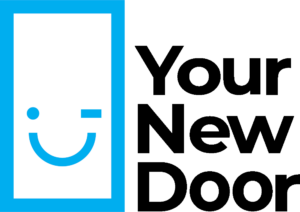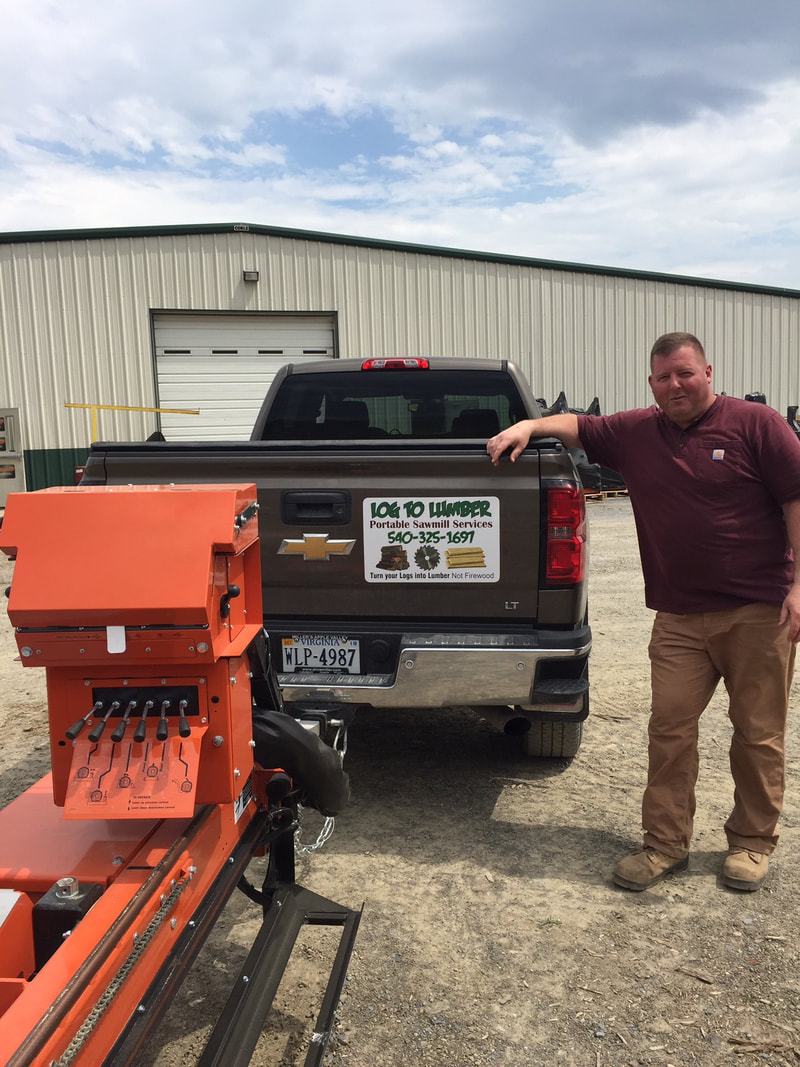TRANSCRIPT
John Chapman: Welcome everyone to the blue-collar voices show. Today, our guest is Jacob Guttman. Jacob is CEO of Nail It Handyman LLC. “Nail It Handyman” services the New York City area, offering a variety of handyman services. You can of course, check out https://nailithandyman.com for a list of services, coverage area and contact information.
Jacob, welcome!
Jacob Guttman: Hi, thank you for having me.
John Chapman: Absolutely! So we’re gonna talk about a number of different things. First I wanted to know, How did you get started in this industry, and how did Nail It get started?”
Jacob Guttman: So I actually have another business in this industry, it’s a contracting business. And doing that for a few years made me realize that whenever I needed a handyman I had a hard time getting someone to really care about the small stuff and punch lists, so that’s when I decided that I’m gonna do something about it.
John Chapman: That’s awesome. What’s your other business?
Jacob Guttman: The other business is a contracting business so we do renovations and remodeling and as probably all the listeners know, and you know, when you finish a renovation there’s a thing called the punch list, which are small stuff that needs to be done and no one really wants to bother with it. And that’s a real challenge for probably every, every contractor or GC and that’s that’s exactly what Nail It does. Nail It focuses on small handiwork and we don’t do any bigger stuff, no bigger projects.
John Chapman: Okay, well would you like to provide a name and a phone number for that as well?
Jacob Guttman: The name is “Home Plus”, it’s a real local company we only service my town, so my County I would say, Rockland County. Nail It however, is much larger and we’re still growing it. Nail It covers 18 different counties. So that includes northern and central New Jersey, New York City, Rockland, Orange and Westchester counties in New York.
John Chapman: That is impressive. And how many years have you been available? When did you start?
Jacob Guttman: Nail It started, uh, we started Nail It two years and two months. So we’re still a new young business and growing.
John Chapman: Sounds like you’re growing pretty well, that’s awesome! So, where do you see Nail It going in the future? What’s your overall plan?
Jacob Guttman: Obviously we want to franchise it at one point, and you know, we want we want to service the entire nation. But as of right now we’re still owner operating, so we cover those 18 areas and pretty soon we’re working on getting it ready to franchise.
John Chapman: That is phenomenal. So, leading up to this point were you the kind of kid that built and made things?
Jacob Guttman: I would say I’m more a business owner than a handyman myself. I would consider myself an entrepreneur more… than a handyman. I was a creator but not necessarily a handyman or not necessarily… I wasn’t busy that much doing stuff that other “handyman” are busy doing on their empty time. Because most people in this industry like to build stuff and if they don’t have a job they’ll build it for themselves. I never owned tools I was never busy with that stuff I was rather busy thinking of plans of building a business. What we sell is just the.. the product that we sell or the service that we sell, but my main job here in the business, and that’s actually what I do, is I come up with ideas. I solve problems and build it up strong.
John Chapman: Right. And, and I’ve noticed that a lot of people that are creators, makers, doers, we don’t really have that business mindset. We don’t have that entrepreneurial thing, it’s more about we focus on the product and this little thing for instance…
Jacob Guttman: Exactly. That’s exactly why I would say I have no competitor out there because most people, most blue-collar entrepreneurs, don’t work on their business they work IN their business. They are busy doing the job itself. But I never do a job myself. I don’t have tools. I’m not you know, I don’t, I’m that my dress code is not the blue or black or you know I don’t wear jeans and, I’m office guy. I sit in the office and then I built a business.
John Chapman: Well that is, that is totally great. The end result is the customer is being taken care of and that’s what matters.
Jacob Guttman: Exactly.
John Chapman: So, you’ve addressed on some of these types of things already in my question list, but what is the largest project Nail It will undertake?
Jacob Guttman: So we consider handiwork as something that one guy can do in less than one day. And, it doesn’t have another name to it. So for example, painting. Painting has a different name, it’s not handiwork, it’s painting.
John Chapman: Okay.
Jacob Guttman: So, we don’t do any painting whatsoever, even if it’s less than one day for one guy. And we don’t do any plumbing, or electricity, no roofing. So we do all types of general handyman work which is light carpentry, light locksmith, assembly of furniture, TV mounting, etc. And everything that can be done by one guy in less than one day, that’s considered handywork. If it’s more than that we would call it carpentry, contracting, renovation, remodeling, things that we don’t do.
John Chapman: So it’s almost like you do honey-do lists on steroids.
Jacob Guttman: Exactly. So honey-do lists is a big part of our business and then we do punch lists which is pretty much honey-do list but for the contractor. So it’s pretty much the same type of work, but it’s a different clientele but the work is the same. So that’s pretty much what we do, small odds and ends jobs. And we also service big chain stores, and banks. For example Target, Starbucks, Walgreens, these are all companies that we service, and that we still service and in those stores its small jobs. For example hanging up a fire extinguisher or some shelving or removing shelving. Real small jobs that no other contractor wants to do.
John Chapman: and that’s because they typically don’t have in-house staff that’s going to handle this type of thing?
Jacob Guttman: They never have.
John Chapman: Okay. So you could have say a home builder, can build a house and rather than having… basically he would have you come in and take care of all those little small details before the homes actually completely finished?
Jacob Guttman: Yes and I’ll give you a few examples, okay? The home contractor he’s just a contractor. The work, the entire work, or most of the work gets done by subcontractors, okay? So basically let’s take trimming. He has a guy that sells the trimming and then installs it. But then one piece of trimming wasn’t done the right way, or there’s a this, a minor change. The trimming guy, the installer of the trimming, he is already at the next job, a twenty thousand dollar job – he doesn’t want to come back for a hundred or two hundred dollars. It’s not worth it. He would rather pay or discount back the one or two hundred dollars to have someone else do the job. So that’s when we come in. So that’s, we do that with trimming, reframing, a lot of times you frame the house and then the customer wants a minor change. Let’s say they wanna eight-foot door instead of a six-foot door, and the framer is done, out of the job, doesn’t want to come back. That’s when we come in.
John Chapman: So in a case where you would do that reframing, do you come in, increase the width and then completely finish it up as far as the trim all the way around, the sheetrock, everything so that when you…
Jacob Guttman: Usually, that those changes get done
before you even sheetrock.
John Chapman: okay, okay.
Jacob Guttman: Usually.
John Chapman: And if say somebody did want to have a larger door installed, let’s say they needed to have say, wheelchair access or something, is that something you can do?
Jacob Guttman: Okay. Yeah we can do it. We can cut up a little bit of the sheetrock, take off one or two of the two by fours or two by six, and then reframe it and install a door. However we won’t paint it. We would put the trimming back but they will need to call painter or paint it themselves.
John Chapman: Okay. And so earlier you mentioned trim as one of your examples, and a lot of times people get specialized. Like you have somebody that specializes in trim, and somebody else might be a framer, how do you orchestrate all of the different personnel that you have for these particular tasks?
Jacob Guttman: So number one we only hire people that are out of college or vocational technical school with usually it’s about 900 hours on textbook and hands-on. So this gives us basically… …we start off from level 80 or 90. We don’t start off from zero. So on top of that we give training to our guys on specific tasks that we do. We have a list of tasks that we do and we train them how to do it.
John Chapman: Okay. And and it may not necessarily be the only right way but this provides consistency for your company on how that particular job is done.
Jacob Guttman: Exactly and then and basically taking consideration that we are here to fill a gap in the market. There is a gap in the market that no one wants to be busy with a small stuff and a result of that, people’s houses are just waiting for someone to take care of the small odds and ends. We are here to fill that gap and based on that we train our guys to know what they need to know in order to get those tasks done.
John Chapman: Okay. That’s, that’s totally awesome. So, I have this question here, let’s just go ahead and take a look at it. You’ve talked about a lot of different things but what are the most important things you have focused on to grow your business?
Jacob Guttman: Can you ask it a little bit more specific? And are you asking in terms of marketing, in terms of in terms of a strategy, of how to get a higher quality job or specifically on what are you asking?
John Chapman: Sure that’s, that’s you know that’s a great, a great request. Let’s just, let’s just take it for a moment let’s just lump everything together if you just had to pick out the most important thing you’d say “okay this is really one of my key things that I would focus on to grow my business” what would that be?
Jacob Guttman: So to grow the business I would say there’s two parts which I just mentioned, there’s two parts to growing the business. It’s the size of the business that you want to grow but you also want to grow the quality of basically the core what you what you do and what and the reason why we’re here. So the reason why we’re here is because no one else, as I mentioned earlier, no one else wants to take care of the small project, okay? So in order to grow that mission that we should be able to take care of the small project, and get a high quality job done to be on time,on budget, straightforward et cetera… To grow that, we have a lot of work to do internally in the business, and that includes weekly meetings with our people, one-on-one training, counseling, etc. Part of that is what I what I mentioned that we take, we only hire professional people that took a course in college or a vocational technical school. That’s on growing our mission, that we should be able to deliver it the way we want to. On the other, on the other hand we have growing the size of the business. So to grow the size obviously, we do a ton of marketing. That’s one part of it and the other part of it is direct sales which is property managers, facility maintenance, and other companies that we reach out directly and and establish relationships so they give us the jobs. That’s in terms of growing get in size.
John Chapman: Excellent. Now I can understand of course, reaching out directly to property managers and those type of people, but as far as reaching a general audience, maybe maybe more of the homeowners, what’s the best marketing that you’ve done for that?
Jacob Guttman: We’ve done a lot of marketing I would say social media is a huge part of it, and but really it really depends on which crowd you’re targeting, and basically the, I would say is the area’s. It depends if it’s an upstate or in the city and that varies between local, papers, newspapers, magazines, interviews, radio, TV ads, we’ve done all of that. Facebook, Instagram, Google Ads. Google ads and Google Ads is a… let me, let me say this, there’s two types of marketing. There’s one type of marketing which is direct sales which you put an ad out, and that ad results in the direct sales. People call you and you get jobs, and then there’s our other type of marketing which is called branding – which is more of a long-term strategy to make people aware that your brand exists. So when they need a handyman they will come to you. So, we have done both and every business owner needs to create a strategy how to, how to get direct sales and how to put some of his money of his budget into direct sales so he can actually turn it into sales and make some revenue out of it, so he can continue to be in business but at the same time, there should be a little focus on the long term branding. Because the long term branding doesn’t have an immediate result, it doesn’t bring you in money immediately. However, in the long term it is much cheaper, because basically what it does is it registers by people that you are the brand to use when they need your product or service. And ultimately you won’t need to advertise anymore because they will remember you versus direct sales. So basically what is direct sales? Direct sales is email blasts with the 10% off. A direct sale is a mailer with certain promotion, or radio ads. What is branding? Branding is your logo coming up, or your video coming up on Facebook to millions or thousands of people. Most of the time if you don’t have a promotion, most of the time that would be more of a branding strategy rather than direct sales.
John Chapman: Okay, those are those are really great points. How did you become marketing aware? What was your, what was your path to this?
Jacob Guttman: So I always like business and like to listen to advice of other people. So obviously when you come my office, there’s a whole shelf full of books about all topics on business, and part of it is marketing. So, I always knew a lot about marketing just because I listened a lot. And then when I started practicing what I knew, and I made some mistakes, I fix those mistakes, and I learned, what needs to, you know, what I need to do and what I shouldn’t do, where it’s worth it to put the money in, know where it’s waste of money, and that’s basically it.
John Chapman: Okay, that’s great. Now the other day on LinkedIn you had read a book and you were promoting that book, telling us how what a great book it was, it was “Willing To Fail” and…
Jacob Guttman: Correct. From Brian Scudamore.
John Chapman: …and so I would say that you read a lot of books, and get a lot of information, who would be some of the other people that you have read that you have learned from, that you get motivation from, and education.
Jacob Guttman: I’ll give you three books that every single entrepreneur must read, that’s my personal opinion. So number one is a very well known book, everyone knows it. It’s “The E-myth Revisited” from Michael Gerber. That’s a must read for every single entrepreneur. The second must read is “EntreLeadership” from Dave Ramsey, which is, I would say also a must. Let me tell you the difference on what those books cover. The E-Myth from Michael Gerber is basically an understanding, a deep understanding how structure, how a business should be structured. It does not give you specific tasks or principles or certain things that you need to do in your business. It only gives you a very strong understanding how a business needs to be structured. Dave Ramsey’s book EntreLeadership is a guide on day to day operation. He guides you on every single thing that goes on in your business starting from hiring, firing, treating your employees, the financials, like every single, single thing that you do in your business you have guidance in that book. The third very important book to read is “Profit First” from Mike Michalowicz. I highly recommend reading that book. It’s basically how to structure your financials so you should actually make profit. There’s a lot of small businesses that are struggling and that’s very true. I’ve seen it personally in many business people that come to me and talk, and friends, that book is very very very important.
John Chapman: That is, those are three great recommendations. I’ve not heard the third one. I actually have downloaded the first two, I just haven’t read them yet. I’ve read a lot of other books but I will definitely be adding those two to my list as far as order of precedence. Well, that is that is good information. As you’ve ran your business, have you had any particular struggles you’d like to cover? Anything that was just frustrating, that you had to work through but you overcame, and now you’re better for it?
Jacob Guttman: I mentioned this already but I’m gonna, I’m gonna cover it a little bit deeper. So basically I mentioned before that we only hire people that took a course in construction, and vocational technical school, that wasn’t so from day one and we struggled a lot on that. I always knew that, from day one I knew that I want to have the highest quality jobs done with our company and especially, people need to understand with construction or remodeling, etcetera, the person, your customer, the person that buys your product or service, they don’t know what they’re going to get. So when they buy, they don’t see what they’re buying, they buy on trust. And the same is with you. When you sell, you don’t know what you sell. You sell based on vision, based on imagination, okay? When you buy something in the store you see something on the shelf, you see the product, you see what it is, you see the price, you buy it, you take it home. It’s very simple and easy. But as I said, with construction it’s very difficult. Taking that in consideration it’s very important to deliver a high quality job because you never know the expectations of the customer and you want to satisfy every customer. So I always knew that I wanna be able to deliver a high quality job. But when we first started I hired people, and how do I know if they do a good job? I look in the resume, I ask them if they have experience. And if they have experience, and I call their previous employer and they give good information and I hear good things about them then we hire them because we think they’re good and we believe they’re good. But the matter of the fact is that everyone says that they’re good, but not everyone is really very good. And not everyone has that much experience. And even the people that have some experience in one area of the business, and let’s say they know trimming or they know furniture assembly, then they won’t know framing and all the techniques of installation of windows and doors. I wanted to get people that really know this, know what their doing and understand. So it took us a long way until I figured out that taking people out of college would be a good plan. And then we had a very hard time establishing relationships with the career services from those colleges. So basically how it works, every college has an office called Career Services. The reason of the existing of that office is because they want, they want to be able to tell future students that come to my college because 98% of our students get a job in the first 90 days. So that’s why they have a Office Career Services, and they’re busy finding jobs for their graduates. So basically there’s a lot of colleges and a lot of courses but in construction there’s not many. There’s a total of four in the entire 18 counties that we service, there’s only four, for construction for colleges that offer construction classes. And this year only three of those colleges actually had the class, one didn’t have the class because they didn’t have enough people to sign up. So we have three colleges that gave courses on that and there’s so much construction going on, so it’s very hard to find real good people. So the very hard thing was to create and establish a very good relationship with the people in the Career Service department, and make sure that we get the best people. This was one of our big challenges.
John Chapman – I can understand that. So you had to work and sell to make sure you had a good pipeline so you can grow your business. And one of the things that I’ve been reading about, is that the job market it’s very hard to find people that’s working in the construction industry. What do you see as long-term? Is this the right kind of career for people to go into? Will it be rewarding? Will it be financially viable for somebody to target this industry, to raise a family?
Jacob Guttman: It obviously depends how you do it. There are people in construction that make millions, and some can’t make ends meet. So, it really depends how you approaches on what you do, on the other hand the people that are blue-collar and like handy and you know any type of construction, they have a passion for their work. It’s something that you get, I would say you get born with it. If you like tools, that we have some, we provide our vans and tools but some of our people ask permission to bring their own tools because it’s their baby. They have a passion to work with their tools. I didn’t see this passion in any other industry other than construction. The people that do construction, they love what they do. So your question is if someone should take this career, such type of career? Obviously if you have a passion to it, do it, but make sure to do it the right way, so you can make a living out of it.
John Chapman: Okay, and that brings up a good point. How would they do that to make a good living, what would be the best process for them?
Jacob Guttman: So first they need to determine whether they should be an employee or employer. They should own their own business or they should work for someone else. And then they need to obviously make sure that they know that they have the passion for it, but they need to make sure they’re good at it, and they can get a high quality job done. Most times those people that can do a high quality job, they will get much better paid jobs. On the other hand, if someone has the proper skills to go in business for themselves, and they think that they can build it up and scale that, they should be able to make a fortune or at least some nice money from it, then they should try to do that, definitely.
John Chapman: All right, well that is great Jacob, I really appreciate your taking the time to to be on the show, and I’m glad that you’re succeeding and I’ll be watching you on LinkedIn. Before we get off of here, is there anything else that you’d like to say?
Jacob Guttman: Yeah, it was just great being on the show and thanks for having me. And if you ever have a question, call me, reach out to me. I’m on LinkedIn, It’s very easy to get in touch with me. So to all of you out there who listen to the show, if you have any questions, if you want my advice, I’m here to help, Jacob Guttman on LinkedIn. You can email me jacob@nailithandyman.com, and if you are in our coverage areas and you want to use our service our number is: 855-562-4548, which is 855-5nailit, or you can email jobs@nailithandyman.com.
John Chapman: That is awesome, I will definitely be providing show notes that includes all this information, and thank you so much Jacob.
Jacob Guttman: Thank You John, Take care.








